Pet Rat Care
For such a small animal rats have the ability to make the biggest place in your heart. To ensure that your little rodent family member has a long happy and healthy life it is important to provide them with the best care possible.
Rats are intelligent and affectionate animals that have the ability to form strong bonds with you and other family members. It won’t be long until you find yourself playing with them everyday which is key to keeping them happy. Pet rats will be happiest when given mental and physical stimulation.
In the sections below we will go through all the best practices for looking after your pet rat.
Purchasing Pet Rats
There are a lot of things to consider when purchasing any new pet and rats are no exception. Whether it’s your first rat or another addition to an existing rat family there will be many factors you will need to account for.
First Time Rat Buyers
Before buying your rat you will need to consider the following; Do you have a cage?
Temperament and Behaviour
Rats are intelligent, playful, loyal, empathetic and love human companionship. Rats are also very clean animals that don’t smell. They enjoy cuddles, playtime and you can even teach them tricks. They’re almost like a little dog.
Pet Rat Life Span
Rats are an amazing pet to have but the downfall to owning a pet rat is that they only have a 2 to 3 year lifespan. It’s also important to know that pet rats can develop some health issues such as a respiratory disease.
- Species of rats and affect on lifespan (i.e white live less long)\
- Longest living rat
Housing
Having the correct housing for your pet rat is important. You should choose a cage that will be big enough to home however many rats you’re planning on having. It needs to be a safe place for your pet rat and escape proof. The bigger the better as rats enjoy and are happiest when they have room to explore, play and climb.
You should always keep your rats cage clean. If you can provide a litter box area in your cage this will help keep it cleaner as rats will learn how to use it quickly. Wiping down surfaces and changing bedding every few days to a week is important in keeping the cage clean and will help eliminate any odors, parasites and bacteria. It’s important that you keep the cage clean because an ammonia build up can cause damage to their respiratory system and you don’t want that.
Choosing the appropriate spot in your house for your pet rat is also important. You don’t want them to be in the direct sun or in heavy drafts. Excessive drafts or placing them straight under air conditioning or heating may affect their body temperature. Providing complete darkness at night time for them is also important so that they don’t experience any health or reproductive problems. Keeping a moderate temperature is important as well because a temperature that is too high or too low can cause stress and can lead to health problems.
Once you have chosen the best house for your rat/s it’s time to choose the items that will go into it. You will need a water bottle, bedding, toys, hideaway areas and food. It’s also recommended that you put the cage on a stand or table instead of on the floor as rats are happier when in an area where they can interact with you.
The most popular housing people use and is probably the best is a wire cage. They also come in all different shapes and sizes and they have great ventilation as they’re open. Cages are also very helpful when it comes to having ramps and different levels. The only downfall to having a wire cage is that some food and litter can end up on the floor because the cage is all open.
If your cage has a wire bottom, it’s best to take it out if you can or place something that’s hard over the top of the wire because having your pet rats walking on the wire can aggravate a condition in some rats that’s known as bumblefoot.
It’s good to provide some nesting materials such as paper towel, tissue, inkless paper or fleece blankets for bedding. It’s important that you stay away from cedar and pine wood shavings. There are a few bedding and litter options you can use instead that are absorbent and safe such as litter pellets or puppy pads under fleece blankets.
Food and Water
There are pellets and block types of food available for pet rats that are nutritional. These are good to use as a basic diet but you should provide your rat with fresh foods to assist in keeping your rat healthy and so they don’t get bored eating the same diet.
There are a range of foods that you can try giving your rats like fruit and vegetables, whole wheat pasta and bread, brown rice, yoghurt, cooked meat occasionally, cheese, seeds, unsweetened breakfast cereals and nuts.
You should try to keep your pet rat on a high fibre, low fat diet. Rats are known to have a bit of a sweet tooth but it’s best to resist giving them any junk foods or sugary food.
Heavy food dishes or ones that can clip onto the cage are best to use so that they don’t tip over. A water bottle with a sipper tube is the best to use for water and make sure you give your rat plenty of fresh water.
Rat Playtime
Rats love playtime. It’s good to provide your rats with ropes, ladders, hammocks, platforms and tunnels. Wood, cardboard or most toys that are for parrots or ferrets are also a good thing to provide for your rats. Some items like paper towel or toilet rolls, scrunched paper and paper bags are good homemade options that you can use.
Some rats may like to run on rat wheels. It’s best to avoid the common wire ones that are found in pet stores as their feet can get caught and they can get injured. A wheel with a solid surface is best to use.
Rats also love to get outside of the cage and play. As rats will chew anything, it’s best to put them somewhere where there’s nothing important around that could possibly get chewed and ruined as well as anything that could be toxic to them. Rats will sometimes leave drops of urine as they’re roaming which is them leaving their scent so if they’re on a couch or bed, it may be best to cover it with a towel or blanket. They may also do this on their owners.
Handling
It’s important that you always handle your rat with care. You should never pick up your rat by its tail. When picking up your rat, you should use one hand to hold around the torso and one hand to support the hind feet. You want your rat to feel safe and comfortable around you and with regular, gentle handling you may find your rat will fall asleep on your lap. Some rats even enjoy adventuring around on your shoulders.

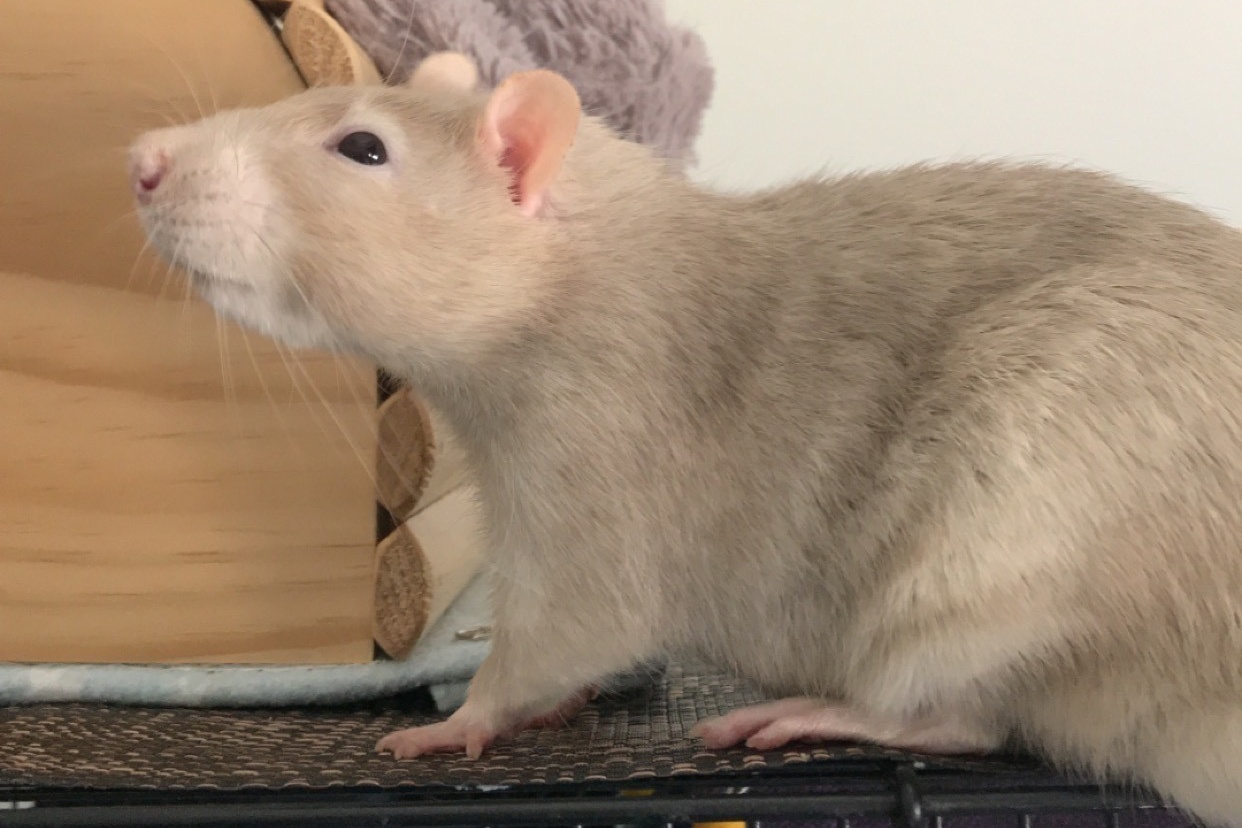
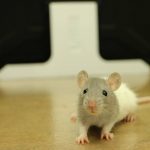



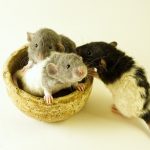



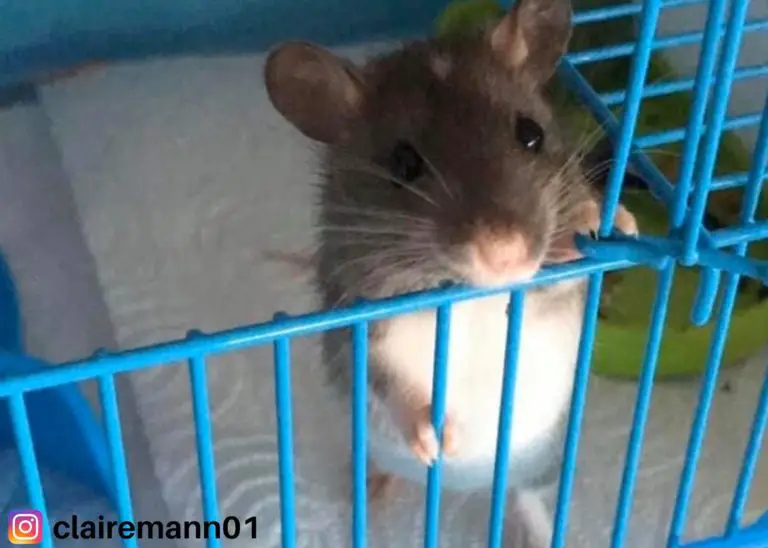
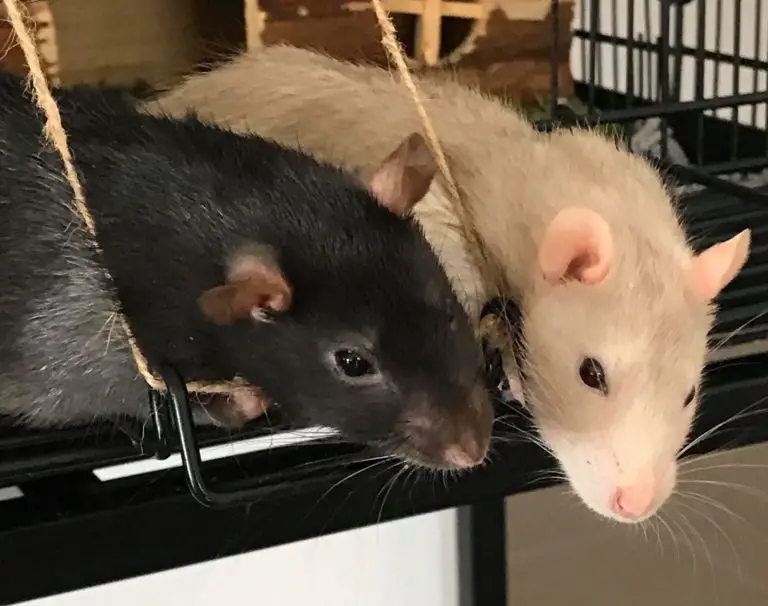
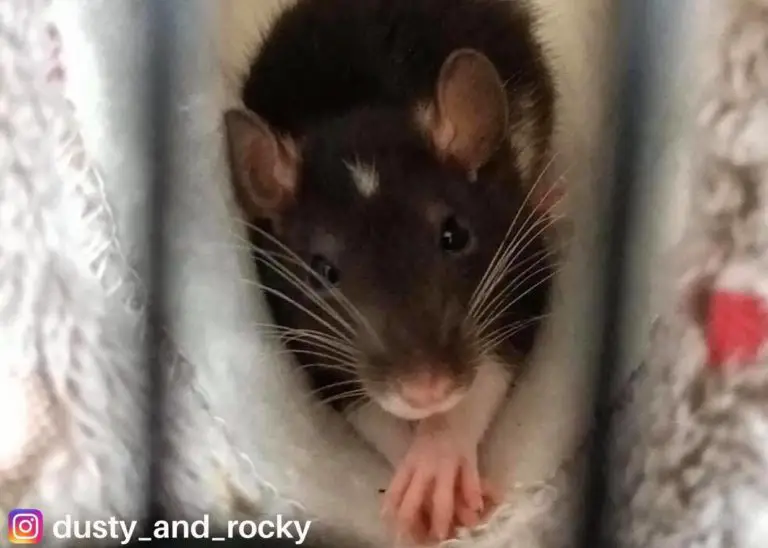
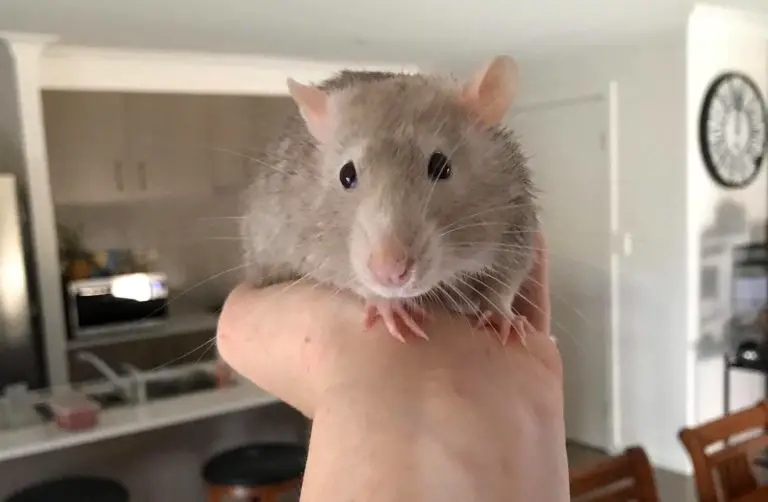
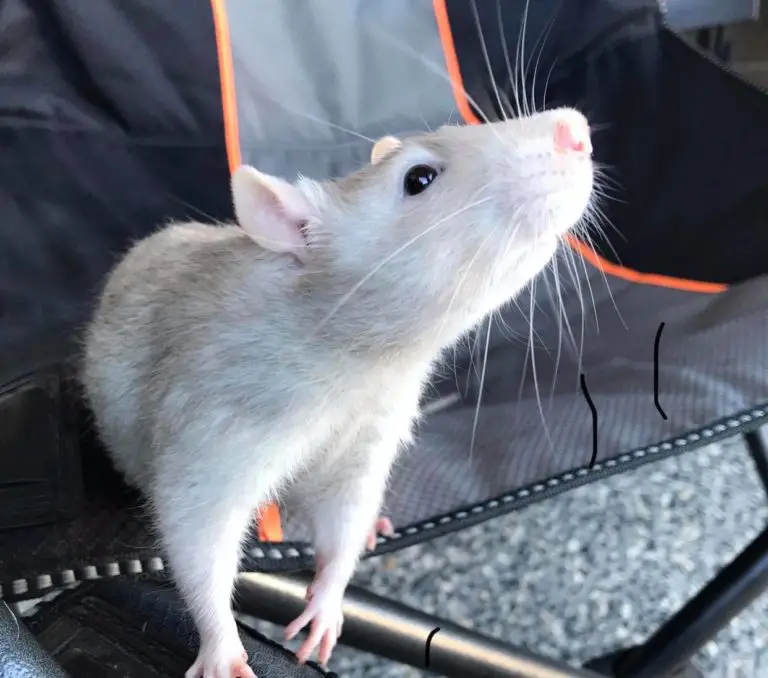
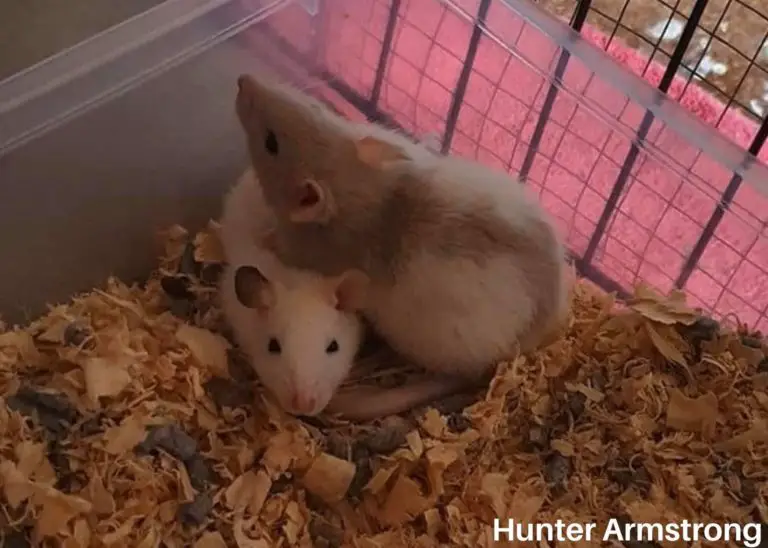
One Comment
Comments are closed.